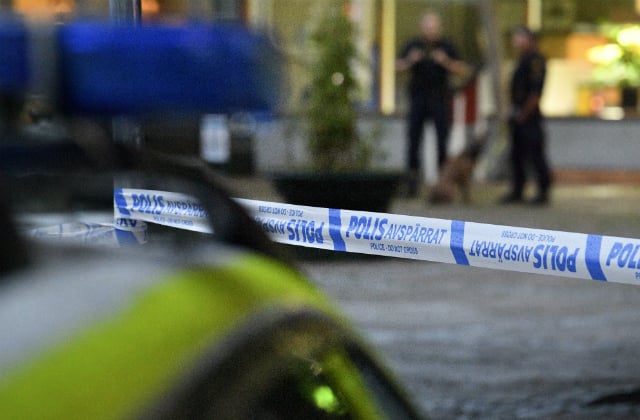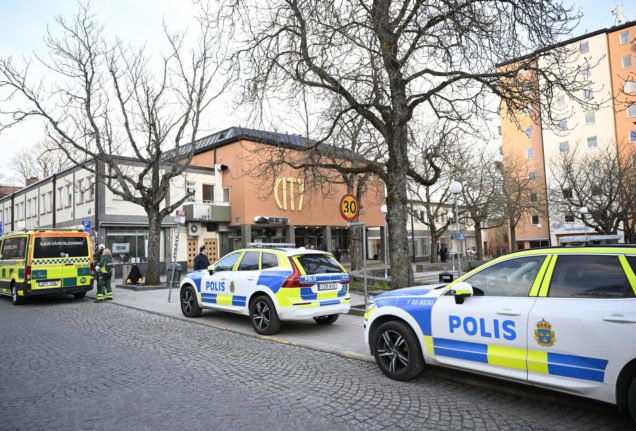The report, 'Violent Extremism and Organized Crime' was conducted by the Institute for Future Studies and is based on data of a total of 15,244 people who police and intelligence services have identified as suspected members of Sweden's violent extremist or organized crime environments.
The data – which only takes complete personal identity numbers into account, resulting in some 1,817 people having been sifted out – was crosschecked against data from the Swedish Companies Registration Office, Statistics Sweden, the National Board of Health and Welfare, the National Board of Forensic Medicine as well as local records.
The report focuses on three main categories: Football firms (hooliganism), organized crime (mafia, biker gangs et cetera) and violent extremist groups (such as white supremacy, Islamist and radical left-wing groups).
It's Sweden's first such extensive study of its kind, and as the results began to take shape, report author Amir Rostami told The Local he and his team were blown away by what they were finding. Not the least because a different profile of these criminals emerged, corresponding very little with the stereotypical picture of a failed school drop-out who suffers from a serious psychological disorder.
“They're better educated, more intelligent and don't at all suffer as much from mental problems as might have been thought,” Rostami said, adding that 92 percent of them have completed their elementary school education, and about half of them also high school, and 8 percent have pursued higher education (university or other). Although 45 percent have a psychiatric diagnosis, only a fraction of them, “a couple of percent”, have serious mental issues, he said. “It shows that to function in these environments, you need to be a fairly high-functioning individual with a fair share of intelligence.”
1. There are 15,244 individuals in the study population. The report makes a distinction between the following organizational types: criminal networks, partial organizations, street gangs, outlaw motorcycle clubs, organized-crime syndicates, football firms,
— Amir Rostami (@amirrostami_) November 12, 2018
The 'typical' offender behind these crimes, was found to be around 19 years old, and 92 percent of them were men. As many as 67 percent of them were also born in Sweden, although a majority of them have roots in other countries via for example their parents.
Biker gangs were the biggest criminal groupings, with 5,693 registered individuals, while 5,094 people were associated with criminal networks in socially deprived areas. Some 835 people were considered to have direct links with football firms and 785 people with Islamist groups.
Another finding that surprised the researchers was that all groups “more or less cooperate with each other,” Rostami said, pointing to, for example, drug-related or economic crimes.
The far most surprising element of the study, however, was the high ratio of criminal suspicions linked to the people in the study together with a co-offender – a person not considered to be a member of the criminal groups studied and therefore not on the police watchlist over such organizations.
Nine out of ten of those studied were suspected of a crime on at least one occasion between 1995 and 2016. Although they, together with co-offenders, represented just 4.5 percent of all suspected criminals in the same period, they accounted for 25.6 percent of all suspected crimes recorded in Sweden in that time.
Rostami said the findings equips Swedish society with a better understanding of who these individuals are, and therefore better tools to either prevent these people from entering these type of environments, or help them exit them. “The more we know about them, the better we get at spotting them and developing preventative measures, and more targeted measures,” he said.



 Please whitelist us to continue reading.
Please whitelist us to continue reading.
Member comments